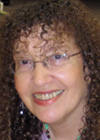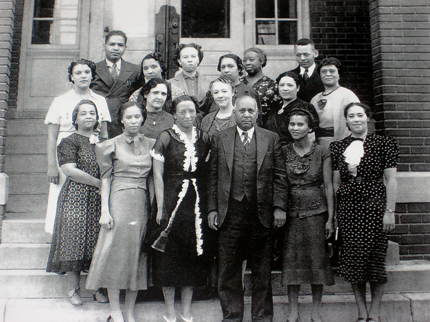Wichita State University’s Special Collections and University Archives: one of the best kept secrets of the campus and Wichita community. Its rich collection of maps, manuscripts, images, archives and rare books attracts researchers from all over the world.

Lorraine Madway
“It’s very exciting because all of these materials are unique,” said Lorraine Madway, assistant professor and curator of Special Collections and University Archives. “We have a chance to acquire and process materials so that we can make them available to researchers.”
Although most notably recognized for its Gordon Parks Papers and related exhibits, Special Collections hosts a number of events catered to the wants and needs of the community.
“We serve the needs of the students, the faculty, the staff and the larger Wichita and research community,” said Madway.
Recent projects include a “Separate is Not Equal” exhibit, presenting photographs and documents that show the history of education in the African American community of Wichita.
The exhibit documents the plight, struggle and triumph of early African American educators. “Separate is Not Equal” shows the effects of segregation and is available to view in Special Collections and University Archives.
Special Collections also collaborates with other universities and researchers in the region.
“Community & Conflict: The Impact of the Civil War in the Ozarks” is a digital project that combines research from Wichita State’s Special Collections with research from Missouri State, University of Arkansas, University of Tulsa, regional museums and county organizations.
Specializing in documents of Kansas and local regions, Wichita State’s Special Collections boasts an extensive map collection, some available online, dating back to 1556.
“We have one of the best small maps collections in the country. Our maps start from 1556 and go on from there,” said Madway.
In addition to maps, Special Collections has obtained bleeding-Kansas Civil War records, artifacts and photographs, as well as documents depicting the history and struggle of women, African Americans and Native Americans in the community. The history of aviation in Wichita is also a staple of the collection.
“We are Wichita’s history detectives,” she said.
Other collections and projects include the Gordon Parks Papers, poems by Albert Goldbarth, the Adele M. Davis Distinguished Professor of Humanities at Wichita State and only poet to be awarded the Book Critics Circle Award twice, and the Margarita Fischer Papers, reflecting Fischer’s life as a screen actress and her role as Eliza in Uncle Tom’s Cabin.
Special Collections also played a vital role in the filming of “Black and Gold,” a documentary of the 1970 WSU football team plane crash that aired on KPTS Channel 8 this past October.
In addition to working with researchers and the community, Madway also assists students, building relationships and practical work experience.
“We really want to have students feel comfortable and accomplished in dealing with unique materials. That’s a wonderful achievement for any student to be able to evaluate and research these kinds of materials and appreciate their significance.”
Whether for students, researchers or the local community, Special Collections provides a look at Kansas’ past and has established itself in the research community.
“Thanks to the Internet we have researchers from all over the world,” said Madway. “We’ve been able to share this cultural richness.”
“Wichita, Kansas is a very cool place,” she said.
So the next time you research your family, Wichita, the Midwest or the world, remember the gem tucked on the lower level of the Ablah Library on Wichita State’s campus.
“We are not only local but are part of the larger world,” said Madway. “We make history come alive in a way that reading it in a book or even looking at it online cannot.”
For more information on Wichita State University’s Special Collections and University Archives (316) 978-3590, visit http://specialcollections.wichita.edu/, or specialcollections@wichita.edu.


 Courtesy
Courtesy